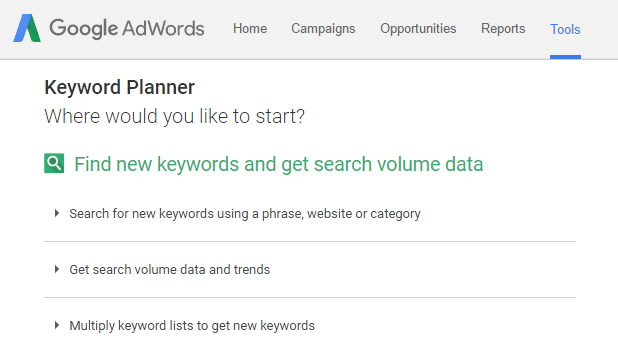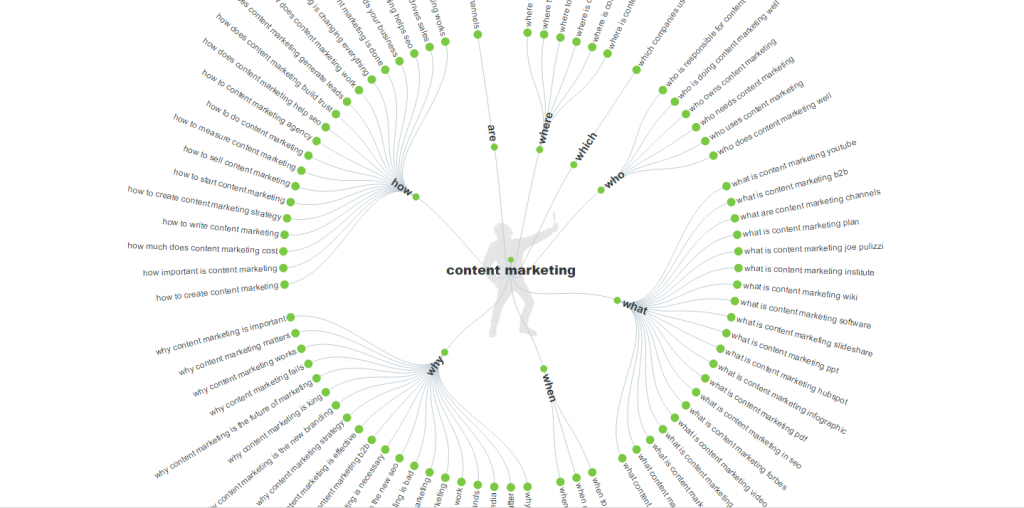So you’re getting ready to start up your very own niche affiliate site. Maybe it’s your first time out, or maybe it’s just one in a growing portfolio of monetized websites.
You’ve honed in on the right niche, though you may still need to narrow it down a bit. You’ve got some good ideas for brandable domain names, and you’re getting ready to install WordPress and fire this baby up.
But there’s one thing you definitely need: keyword research.
The way Google works has changed, and the way people search has changed. Ranking varies with geography, and even with individual users. We’re in an era of hyper-personalization.
Keyword research goes far beyond SEO. It's about understanding your audience, so you can tailor your content and offer them exactly what they've been looking for.
It's a peek into what your readers are thinking, and that's something you definitely need. Even if you have a great understanding of your niche, based on personal experience, you can still get some great “lightbulb moments” by checking out what people are actively searching for.
It's not just a matter of ranking in Google for some exact keyword.
It's about your content.
Whether your content itself is the product, or whether it's a means to an end like selling a tangible product, content marketing is here to stay.
Keyword research is a window into what kind of content your audience wants to see.

It tells you what kind of questions your audience is asking.
That’s absolutely vital.
Keyword research helps you get into people’s heads. By looking at longtail keywords — those are specific, multi-word queries with less search traffic than broader terms — you can gain a better understanding of the entire process your audience goes through on the way to making a purchase.
You might find problems or questions you hadn’t even thought of. Problems that your product or your content can help people solve.
While digital marketing is becoming increasingly content-centric, SEO is still a perennial standby for affiliate marketers, and it starts with keyword research. It’s about finding the right search queries that fit a relevant set of general criteria that you should keep in mind:
Competitiveness. Sometimes, SEO can be an uphill battle for the little guy. But in other cases, ranking is a breeze. It’s important to pick your battles wisely. Don’t bring a knife to a gunfight.
Commercial intent. This is a big one. Some queries are mostly informational. If someone types “What’s the capital of Belgium?” into Google, there’s no clear indication that they intend to purchase anything related to that. But if they search for “best prices on plane tickets to Brussels,” they’re clearly getting ready to make a purchase decision.
The buyer’s journey. Different queries indicate different stages along the modern day buyer’s journey. Different keywords may fit into different stages within your general sales funnel. Some of them bring in leads who are in the interest and research phase. Others are typical of someone who’s very, very close to making a purchase decision. Some fit in between.
Keyword research helps you pinpoint the right terms, the ones with the best chance of bringing in organic search traffic that actually converts.
But where do you go to do this?
Google Keyword Planner: Relevant, But Ultimately Limited

Back in summer 2016, Google removed specific search volume information from Google Keyword Planner. You’ll see things like “10k-100k.”
That’s a pretty broad range.
This isn’t to say you shouldn’t make use of Keyword Planner to find relevant keywords. But it doesn’t provide as much detailed information as it used to.
Because of that, there’s been a growing market for free and affordable keyword research tools.
First, a word about pro-level tools. Software like Ahrefs and SEMRush are industry standards, and really, they’re ideal.
But they come at a cost, and it’s not insignificant.
Ideally, your site will eventually bring in enough revenue that you’ll be able to invest in SEO software. But when you’re starting out with a limited budget, you’re probably not going to have the cash on hand.
Ahrefs and SEMRush do offer 30-day trials, and it’s a good idea to take advantage of that. But this is limited, obviously, and you’ll only have it for long enough to get the initial groundwork in.
What then?
This is where the free and inexpensive tools come in.
These are generally geared toward helping you find longtail keywords. Some give search volume and other information, others don’t, but all of them can be incredibly valuable tools for smart affiliate marketers.
Finding the Best Free Keyword Research Tools
There are a surprising number of free longtail keyword research tools out there. We’ve honed in on our top five, the ones that really stand out from the crowd.
These tools can help you get a better idea of what your audience is thinking, helping you strategically focus on the right set of people.
There are also some paid tools out there that are much more affordable than something like Ahrefs, Moz, or SEMRush. But, we’ve chosen to focus on the tools that are 100% free to use.
So which ones are the best? Here’s our list.
#1: Ubersuggest

Ubersuggest was recently acquired by none other than Neil Patel, one of the world’s foremost marketing gurus.
This useful tool helps you hone in on tons of relevant longtail keywords — especially keywords that might not show up in Google Keyword Planner.
We typed in “content marketing” and got over 300 keywords.
Not bad!
Another cool thing about Ubersuggest is that for every search you do, it generates a word cloud. These are quite nice to look at, but they also give you information about which words are commonly included in the same search query as your main keyword.
For “content marketing,” the biggest words in the cloud were “2017,” “for,” “jobs,” “2016,” “trends,” and “strategy.”
#2: SEOBook Keyword Tool

This one isn’t all that widely known, although the SEOBook blog does have a solid following. (Just so you know, the authors can be a bit pessimistic about the future of SEO. That said, it’s a fascinating read, so check it out.)
What really stands out about the SEOBook Keyword Tool is that despite the fact that it’s completely free to use, it gives an impressive selection of information, which most tools ask you to pay for.
It provides the following information for both the US and the UK:
- Monthly searches
- Total daily searches for Bing, Yahoo, and Google combined
- Daily searches specifically for Google
- Daily searches for Bing and Yahoo
- CPC
- Monthly value
Although it’s free, you will need to sign up for a free member account on SEOBook to use it. This is a quick, easy process that doesn’t take up much of your time, and it’s definitely worthwhile.
#3: Answer the Public

Answer the Public is especially valuable for finding relevant questions you can answer for your audience.
This tool focuses on two things: question queries and preposition queries.
You’ll get “who, where, when, how, and why” questions, along with search queries that include terms like “for,” “with,” and “vs.”
Even better, it automatically generates impressive visual graphics that give you a quick view at a glance at the top questions, clustered by question word and by preposition.
For “content marketing,” Answer the Public came up with questions like “how does content marketing make money,” “how does content marketing affect seo,” and “what are content marketing trends.”

It also came up with preposition queries like “content marketing vs advertorial,” “content marketing with images,” and “content marketing to baby boomers.”
A lot of these questions may basically be unanswered until now. This is a great opportunity for you to create unique, original content that provides genuine value to your audience.
#4: KeywordS*****r
Simple yet surprisingly useful, this humorously named longtail keyword generator is great for finding new ideas for fresh, SEO-friendly content.
As you can see if you click the link, the web design is deceptively basic and no-frills. But what it lacks in visual appeal, it makes up for in utility.
It basically sources longtail queries through Google Suggest, giving you a long list of things that people have searched for. It continually generates keywords.
After a while, you’ll start noticing that what it’s coming up with is totally unrelated to your niche. When that happens, just click on “Stop Job.”
Some of the queries it pulls up will be highly relevant for your site. Others might be a bit tangential, or aren’t focused on the right things.
For example, if you’re blogging about content marketing strategy, queries like “content marketing careers” or “content marketing salaries” aren’t what you’re looking for.
#5: Keyword.io

Keyword.io is similar to KeywordS*****r, in that it pulls ideas from Google Suggest and gathers them all in one convenient list.
They do offer a paid Pro version, but the basic version is free. We recommend using both Keyword.io and KeywordS*****r to pull up as many relevant longtail keywords as you can find.
Keyword Research Doesn’t Have to Be Expensive
While it’s generally worth investing in professional SEO software when your site starts generating enough revenue to do so, free keyword tools are incredibly useful when you’re starting out.
Plus, as your site grows, they’re a great way to generate new content ideas.
From the SEOBook tool and its full suite of features, to unique approaches like Answer the Public, you can find the right keywords without spending a dime.
CHALLENGE Yourself to Profit!
Free Download: Build Your Profit-Generating Online Business With This Free Blueprint
Sign Up, follow the easy steps and You'll get the tactics, strategies & techniques needed to create your online profit stream. It's free!



